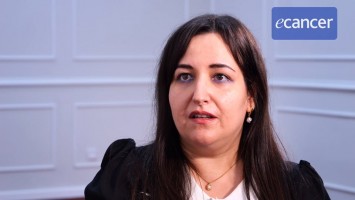Breast cancer is the first cancer in women about in terms of incidence and mortality, more than organised breast cancer screening was on any opportunist basis and involved mammography by the private sector, private healthcare sector. However, most Moroccan women had never been screened and 17-18% of all breast cancer cases were diagnosed in an advanced stage. In 2010 a partnership was launched between the Moroccan Minister of Health, the Lalla Salma Foundation of Prevention and Treatment of Cancer and the United Nations Population Fund and the screening group of the International Agency for Research in Cancer. The goal in this partnership was to implement a national programme for early detection of breast cancer using physical examination as the screening tool. So the objective of the study was to evaluate the study, the pilot breast cancer screening programme, and the region of Morocco during the period 2012 to 2014.
What is the breast cancer situation in Morocco?
The screening programme was pyramidal; the women aged 45-59 years who attended their primary care unit of the public sector for any reason. Screening was performed by a general practitioner, nurse or midwife. Women with a positive physical examination, the results were referred to a secondary health centre or referral centre for confirmation, diagnosis by mammography, which was performed by a gynaecologist. Women with a negative palpation or a physical examination, test results or with no problem detected by mammography were and advised to undergo a rescan after two years. When breast cancer was suspected at mammography a biopsy was taken at the referral centre and the women referred to a tertiary hospital for staging, further investigation and cancer management.
Screening by palpation, confirmation by mammography and histology and treatment of breast cancer were all covered by the national health insurance system and, depending on individual participants, [?? 3:34] research. Quality assurance is approved by national public health specialists in charge of running the programme and the private sector screening using mammography is practised but there are not valid data available.
What were your findings?
We were able to assess the whole process because this programme creates an electronic medical information system that consolidated the data on and this allowed us to compare relative performance across facilities, across service providers and across state and population municipalities. It will also be possible to compare quality and for mammography and cytopathology against an international benchmark based on the experience of countries with a most established screening programme. Our findings showed that the participation rate was 59% in the Moroccan programme, this rate is lower than reported in many other countries like the Netherlands. Our lower rate may be explained by the absence of a clear message and awareness at the national level by and media. The referral rate was lower in 2012 than in 2013 and 2014. The treatment rate evolution rate represents 18.3% of cases diagnosed.
In conclusion, the first results are very encouraging but there is a need to closely monitor performance and to review the procedure with the aim of increasing both the participation rate and the proportion of women eligible to attend screening.








